‘Hardwired to fight every demand’: what Harry’s family did to find happiness
From getting out of bed to teeth brushing, there are at least 32 steps to help Harry through each day. This is the story of how his family endured Covid lockdowns with an autistic toddler, and their search for answers to his complex behaviour.
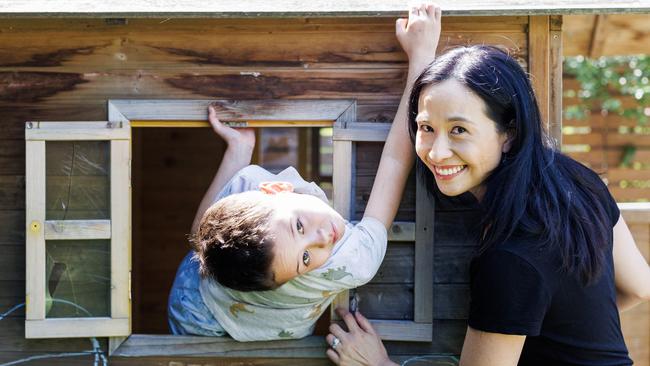
A dollop of joy. Equal measures of exhaustion and exhilaration. Fluctuating doses of tediousness and frustration. Child rearing is a complicated mix and it’s rarely straightforward. But while every parent’s story is unique, Porscia Lam’s is also a good part excruciating.
Even today, with her six-year-old son happy and settled at primary school, life is hardly breezy. “Harry’s desire to control everyone in our household,” she writes in her new book, The Unlocking, detailing her family’s experience of Melbourne’s Covid lockdowns with an autistic toddler, has been “a source of elemental torment to me”.
Should her firstborn stub his toe on the couch, for example – an occurrence and its aftermath that his mother says occurs “quite a lot” – he can easily become distraught. “It feels like a situation that’s out of control. So he tries to (gain control) and gets me to apologise to him on behalf of the couch – ‘Say sorry five times, say sorry 10 times’ – and then have a meltdown,” she tells The Australian. “So I say ‘Sorry, I apologise on behalf of the couch’.”
She does this often, but not willingly; it’s degrading, and she hates herself each time. “It’s so hard when it happens in public,” she says. “He’s bumped into the wall, and I’m apologising to the wall – and people think that I’m a really bad parent.”
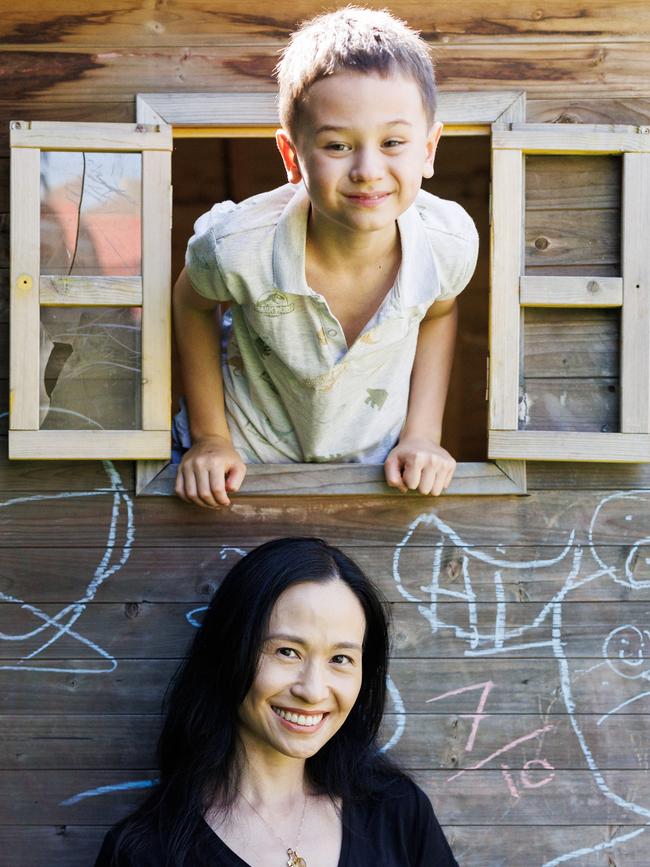
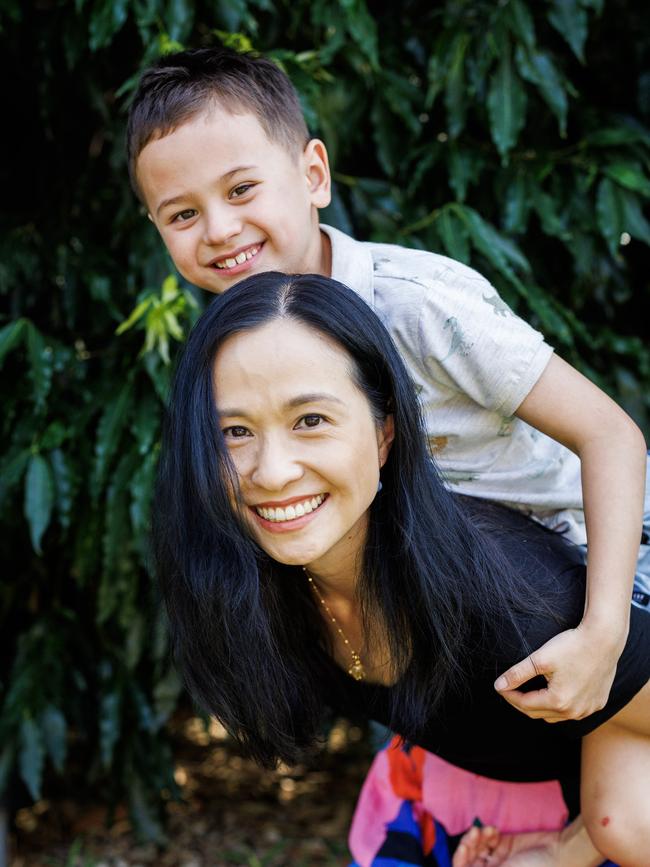
Time and experience, though, have taught her that the best way to approach her son is to comply, and then to calmly explain later why his behaviour was inappropriate.
Which is not always easy with a complicated mix. Take an autism diagnosis and throw in Pathological Demand Avoidance, a syndrome involving extreme resistance to ordinary demand; among other things, Harry refused to use the word “hello” for years. Then toss in a case of Avoidant Restrictive Food Intake Disorder, a comparatively newly recognised eating disorder.
When your child refuses so many foods that his diet is reduced to nine specific items, all crunchy and including baby corn puffs, potato crisps and hash browns but only from McDonald’s, you will be told, more than once, that your picky first born just needs a bit of tough love. Why else would he have eaten nothing for dinner for three years but chicken tenders?
“But when I say he won’t try different brands of frozen chicken tenders,” she says, “they understand that there’s something there that’s more than a fussy eater.”
Living with Harry is a challenging jumble of chaos seeking order, increasing joy and exhaustion. His father Paul, a specialist doctor, once calculated that from getting out of bed – which involves continuous rounds of crawling on the mattress without touching the floor for just so long – to teeth brushing, there are a minimum 32 steps to assist his son through an average day – all of them “essential and unavoidable”.
It was not always thus. “For the first four months he was actually totally typical. Then he started being fussy with breastfeeding,” says Porscia, a lawyer who was overwhelmed with the challenges of first time motherhood in the early months of 2018. “I was really out of my depth.”
She was baffled by her son’s growing food refusal, which eventually encompassed almost everything from blemished fruit to incomplete toast slices. “After a few months I realised it probably wasn’t me. It was something with Harry that required a level of understanding that I didn’t have.”
But that didn’t make life easier as the list of things that Harry would do, or not, grew. He refused to wear shoes for a good part of a year. He took months, not days, to settle into childcare, and only attended with a known adult by his side.
He was anxious, hated being away from his parents, insisted on constant adult engagement “and if he did not get it, his persistent whining would quickly escalate into a meltdown from which it was hard to recover”. He lashed out at his younger sister Tessa. He became increasingly inflexible and rigid and “if he got one small twist in his knickers, his default solution was to forgo knickers altogether”, according to his mother.
“Every 15 minutes we would have to fight with him throughout the day, whether it was washing his hands, changing his nappy.”
Yet despite her son’s “outlandish behavioural challenges”, the process of obtaining any diagnosis was long and hard. Because as Porscia and her family were struggling to live with Harry, and to decipher his behaviour, the country went into lockdown – and the in-person help they needed was zapped.
“Every 15 minutes we would have to fight with him throughout the day, whether it was washing his hands, changing his nappy.”
By the time Harry was approaching his second birthday, the Covid pandemic was sweeping the world. Confined to their Melbourne home, so many aspects of the life they had tried to contain for so long became acute.
“We were definitely thinking about survival and safety the whole time during those two years of lockdowns,” says Porscia, who was trying to resume her legal work after maternity leave. “Harry was two and Tessa was one and absolutely our priority was just to keep the two children safe from one another.”
That entailed considerable parental input. Even with grandparents present, one parent was still on hand to tend to the children. The strain became so much that eventually Paul, a gastroenterologist, took leave and became their primary carer during the pandemic.
In the midst of those months of mayhem, after seeking what help they could from a challenged health system, the family received an answer. In July 2020, at two and a half, Harry was diagnosed with Autism Spectrum Disorder – Level 2, meaning that he required substantial support.
Autism is a developmental condition that affects how a person behaves and interacts with the world. While its symptoms are varied and broad, many people have difficulty with social interactions and communication, and restricted and repetitive behaviours and interests.
But that only partly explained what the family was experiencing. Inflexibility and control remained issues. Then there was Harry’s dislike of food, which had become pronounced and often included firm routines. He would only suck a yoghurt pouch if he could play with the lid. Macaroni and cheese was one of the few things he would eat but only if it was not too hot or too cold, and he became upset if any sauce touched his chin. Meal times became “a disturbing and highly abnormal pattern of self-sabotage” as he avoided almost everything he was served.
Even when lockdowns in Melbourne ended “we were still effectively locked down by Harry’s routine”, says Porscia. Restaurants were out, given Harry’s tiny food repertoire. Multiple changes of clothes had to be accessible in case even a drop of water spilt from his drink bottle.
They could be away from home for no more than 30 minutes. When the family eventually managed to get away for one night, they then had to trek around Ballarat seeking a nun – a subject about which Harry had suddenly become obsessed. Meanwhile, poor emotional regulation meant that, because of his propensity to lash out, until he was four Harry was never left with his sister for longer than 15 minutes unless two adults were present.
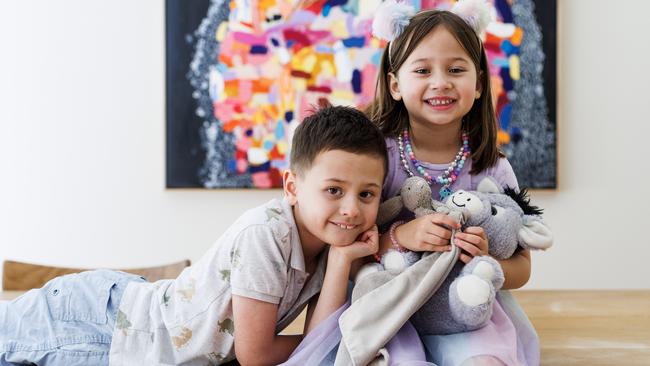
A breakthrough took years, as Porscia realised that her son lacked the intuition and skills to play with others. Eventually a psychologist mentioned Pathological Demand Avoidance. Considered a sub-set of autism in some countries, PDA is not recognised in Australia and so cannot be formally diagnosed.
Still, Harry exhibited some classic symptoms. Inflexible, with a tendency to avoid everyday demands to an extreme extent, and an anxiety-based need for control, he was, according to his father, “hardwired to fight every demand and more than any other reward, control is the highest prize”.
With time, his parents also believed that Harry had Avoidant Restrictive Food Intake Disorder. A serious eating disorder often emerging in childhood, ARFID is characterised by aversion to food as a result of anxiety, and can include a heightened sensitivity to aspects of food including texture, according to the National Eating Disorders Collaboration.
Faced with a child with multiple challenges, not all of them formally recognised in Australia, Harry’s parents had to make some choices. Apart from meal replacement formula to boost his nutrition, Harry would be taught, step by step, skills of engagement.
Using Applied Behaviour Analysis, a sometimes controversial therapy that reinforces positive behaviour and involves considerable repetition, some of the things he resisted were broken down into tiny steps. After three months, he learned to wear shoes again. Much later he learned to taste a small piece of apple, and eventually a slice of toast.
“Everything about him [Harry] takes up our time. He will never just walk to the bathroom on his feet. He will roll out the door.”
The process was tedious, and is ongoing. Change became most noticeable towards the end of 2023. By then Harry had undergone three years of intense therapy. He was also medicated for his anxiety.
The combination, says his mother, was marked. “In the space of three months to go from a kid who was almost ready for school to being school ready and able to go to his friend’s birthday parties … I was able to fade away into the background with the other parents; it was like he grew up a year and a half in the space of three months.”
On the cusp of his seventh birthday, in many ways, Harry these days is “just like any other almost seven-year-old kid,” says Porscia. “He’s cheeky, full of energy, gets into all sorts of trouble, is best friends with his sister, but also terrorises her.” He has never declined to attend school, and his separation anxiety has improved so significantly that he can attend school holiday programs on his own.
But some things linger. The family still rarely travels, and a recent three-night trip had to be shortened to two nights because it was an unstructured beach holiday and Harry did not have all his familiar toys present.
The cost of parenting has also been significant. “My husband and I don’t do much together, maybe three times a year,” says Porscia. She and Paul take turns being away with the children and mostly still have a babysitter to assist the other parent at home.
“We put our relationship second,” she says. “At the moment we’re kind of like workmates and every bit of spare energy is put into helping the two kids with their dynamic.”
The boy who will never walk down the street in a straight line is “not shackled by his anxiety any more”. Many of his aversions have settled down. But life is still tricky. While Porscia can have her daughter ready in the morning in 30 minutes, she wakes her son an hour earlier. “Everything about him takes up our time.” Nor is life often straightforward. “He will never just walk to the bathroom on his feet. He will roll out the door.”
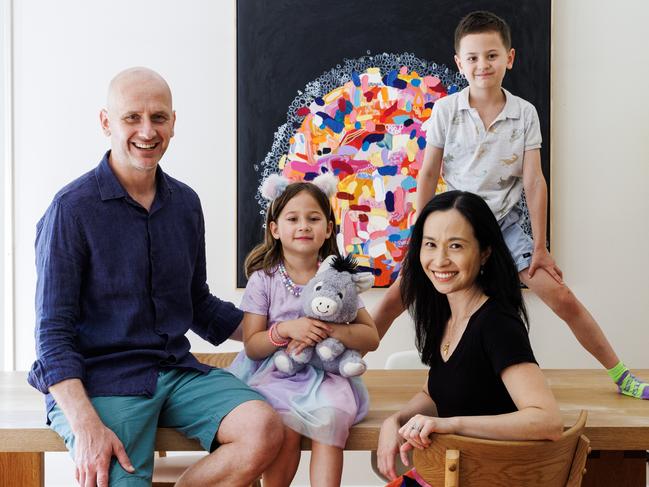
Food and its setting remain an issue. While his parents are celebrating a breakthrough (“we’ve just taught him to eat a cheese toasty”) meals remain fraught. The family still sits down to dinner each night, although Harry is allowed to amble. Sometimes he crawls under the table, and accidentally kicks the furniture in the process – a chain of events that, like stubbing a toe, often comes with dramatic consequences.
“He will send one of us out of the room,” says his mother of the overwrought son she then encounters. “He’s not in a state to be able to learn from the experience. So I actually do what he asks me to do and we try and pick up the issue two hours later when he is calm.”
After years of therapy, life is better but not perfect. Harry’s mother hopes that writing about her family’s experience will shine a light on the fraught lives of other families coping with complexities. “This story is not a rare one,” she says.
And when her son one day reads this story? “I hope that when he reads it he will see the amount of love and dedication poured into his early years … the things we did to teach him the skills that Tessa was able to learn just by observing.”
The Unlocking (The Kind Press) by Porscia Lam is published on February 25.




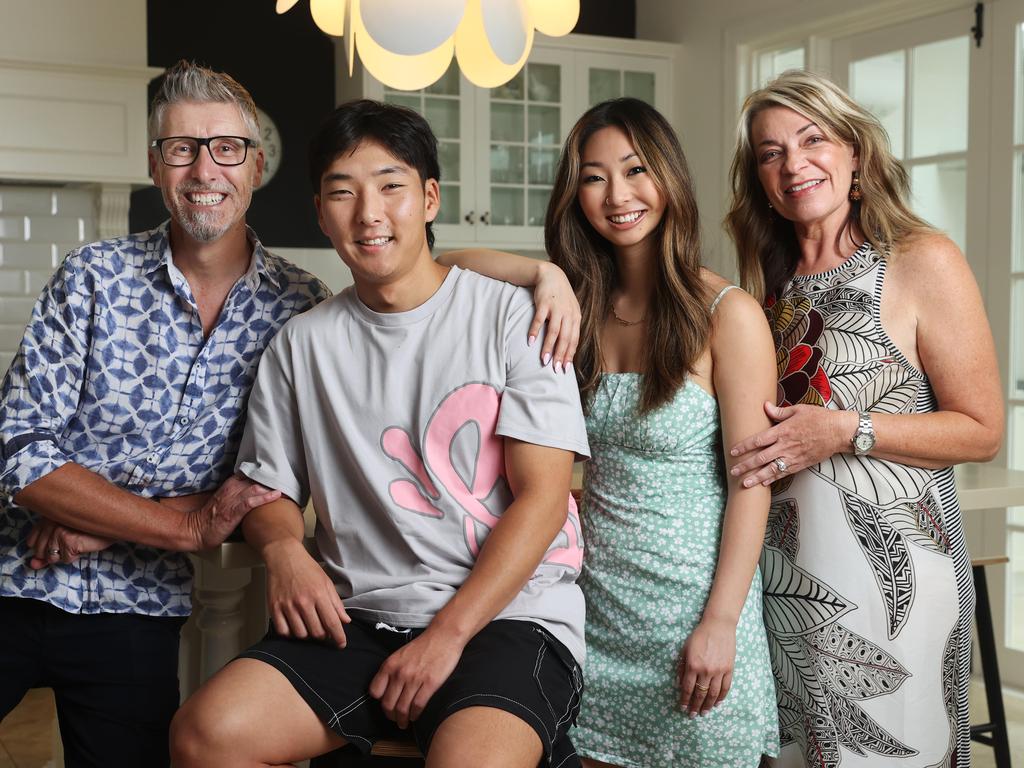
To join the conversation, please log in. Don't have an account? Register
Join the conversation, you are commenting as Logout